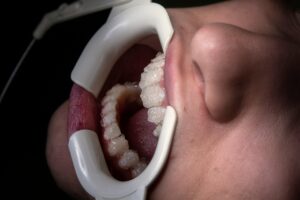Undergoing jaw surgery is a big step, and healing takes time. One concern many patients have is jaw surgery scars. While modern techniques help reduce visible scarring, some marks may still form. The good news is that there are ways to minimize and manage them for the best possible outcome. Proper care and the right treatments can make a significant difference in how scars heal.
Why Do Jaw Surgery Scars Form?

Scars develop as part of the body’s natural healing process. When the skin is cut, it produces collagen to repair the area. This can lead to a scar, which may appear raised, flat, or slightly discolored. Several factors influence how noticeable the scar will be.
1. Type of Incision and Surgical Technique
- Many jaw surgeries involve incisions inside the mouth, which means no visible scars on the face.
- In some cases, external incisions are needed, often placed under the jawline or along natural creases to be less noticeable.
- The skill and approach of the surgeon play a role in how well the incision heals.
2. Skin Type and Genetics
- Some people are more prone to raised or pigmented scars due to their skin type.
- Genetics can affect how quickly the body heals and how scars form.
3. Post-Surgical Care and Healing
- Keeping the incision clean helps prevent infections that could worsen scarring.
- Proper hydration and nutrition support healthy skin repair.
- Too much sun exposure can darken scars, making them more visible.
Understanding what causes scarring is the first step to improving healing. With the right care, scars can fade over time and become less noticeable.
How to Minimize Jaw Surgery Scars
Minimizing jaw surgery scars starts before the procedure and continues well after the healing process begins. Taking the right steps early on can improve the way scars form and how they fade over time.
1. Before Surgery: Preparing for Better Healing
- Choose a surgeon with experience in minimizing visible scarring.
- Discuss incision placement to understand how it may affect scarring.
- Keep the skin clean and moisturized leading up to surgery to support healthy healing.
2. Immediately After Surgery: Protecting the Healing Area
- Follow the surgeon’s aftercare instructions carefully.
- Keep the incision site clean to prevent infection, which can worsen scarring.
- Avoid excessive movement that could stress the incision and cause poor healing.
- Stay hydrated and eat a nutrient-rich diet to promote skin repair.
3. Long-Term Scar Care: Promoting Fading Over Time
- Sun Protection: UV exposure can darken scars, making them more noticeable. Use sunscreen or cover healing areas when outside.
- Silicone Treatments: Silicone sheets or gels can help soften and flatten scars.
- Gentle Massage: Once healed, light massage can improve blood flow and reduce scar stiffness.
- Hydration and Nutrition: Drinking plenty of water and eating vitamin-rich foods help skin recover more efficiently.
Taking these steps can improve how scars heal and fade. While some scars may always be slightly visible, proper care makes a noticeable difference in their appearance.
Effective Treatments to Improve Jaw Surgery Scars
Even with proper care, some scars may take longer to fade. Fortunately, several treatments can help improve their appearance. Some options can be done at home, while others require professional care.
1. Non-Invasive Options
These treatments can be used at home or with the guidance of a dermatologist:
- Silicone-Based Products – Silicone sheets and gels help soften and flatten scars over time.
- Scar Creams and Ointments – Products with ingredients like vitamin E, hyaluronic acid, or onion extract can promote healing.
- Gentle Massage – Once fully healed, massaging the scar can improve circulation and break down excess collagen buildup.
- Hydrating the Skin – Keeping the skin moisturized with lotions or oils can prevent scars from becoming dry and rough.
2. Professional Treatments for Stubborn Scars
If scars remain noticeable after months of healing, medical treatments may be an option:
- Laser Therapy – Helps reduce redness and smooth raised scars by stimulating collagen production.
- Microneedling – Creates tiny punctures in the skin to encourage new cell growth and even out scar tissue.
- Chemical Peels – Removes damaged skin layers to improve the texture and color of scars.
- Steroid Injections – Used for thick or raised scars to soften and flatten them over time.
- Surgical Scar Revision – In severe cases, a minor procedure may be done to remove or reposition a scar.
The right treatment depends on the type of scar and how it has healed. For those looking to improve the appearance of jaw surgery scars, consulting a specialist can provide the best recommendations based on individual skin needs.
Common Myths About Jaw Surgery Scars
There is a lot of misinformation about scars and how they heal. Understanding the facts can help set realistic expectations and prevent mistakes in scar care.
1. “Scars Will Completely Disappear Over Time”
- Scars fade, but they rarely vanish entirely.
- Proper care can make them less noticeable, but some may always be slightly visible.
2. “Expensive Treatments Are the Only Way to Reduce Scars”
- Many affordable options, like silicone sheets and scar creams, can improve healing.
- Professional treatments can be effective, but they aren’t always necessary.
3. “Keeping Scars Covered Helps Them Heal Faster”
- While protection from the sun is important, scars also need exposure to air for proper healing.
- Silicone sheets and light massage can promote better healing, but complete coverage isn’t always beneficial.
4. “Vitamin E Always Works for Scar Healing”
- Some studies show vitamin E can help, but others suggest it may cause irritation in some people.
- Silicone-based treatments and hydration are often more effective.
5. “Scars Stop Changing After a Few Months”
- Scar remodeling can take up to a year or longer.
- With proper care, scars continue to improve over time.
Knowing the truth about jaw surgery scars can help with making informed decisions about care and treatment. Patience and consistency are key to achieving the best possible results.
FAQs About Jaw Surgery Scars
Many patients have questions about how scars will heal and what can be done to improve their appearance. Here are some common concerns.
1. How long do jaw surgery scars take to fade?
- Most scars go through different stages of healing and can take several months to a year to fade.
- With proper care, they often become less noticeable over time.
2. Are internal scars as noticeable as external ones?
- Internal incisions, such as those inside the mouth, typically don’t leave visible scars.
- External scars may be more noticeable at first but often fade with time and treatment.
3. Can certain foods or supplements help with scar healing?
- A diet rich in vitamins A, C, and E, along with protein and hydration, can support skin repair.
- Supplements like collagen may also help improve skin elasticity and healing.
4. Is it normal for scars to be red and raised at first?
- Yes, scars often appear red, raised, or firm in the early stages of healing.
- Over time, they typically flatten and become lighter in color.
5. What is the best way to prevent scars from getting worse?
- Follow aftercare instructions to keep the incision clean.
- Avoid picking or scratching the healing area.
- Use sun protection to prevent darkening of scars.
Taking the right steps can improve how scars heal and prevent them from becoming more prominent. If concerns arise, a doctor or dermatologist can provide guidance on the best treatment options.
Conclusion: Managing Jaw Surgery Scars for the Best Results
Healing from jaw surgery takes time, and scars are a natural part of the process. While they may not disappear completely, the right care can make them less noticeable. Keeping the incision clean, protecting it from the sun, and using scar-friendly treatments all contribute to better healing.
For those looking to improve the appearance of their scars, options range from simple at-home remedies to professional treatments like laser therapy or microneedling. The key is to be consistent and patient, as scars continue to change for months after surgery.
If a scar remains a concern, consulting a specialist can help determine the best approach for further treatment. With proper care, most scars fade significantly, leaving only a small reminder of the healing journey.
Take the Next Step Toward a Confident Smile
Healing from jaw surgery is just one part of your journey to better oral health. If you’re looking for expert orthodontic care to enhance your smile, Bowers Orthodontic Specialists is here to help.
Our team provides personalized treatment plans designed to fit your needs, whether you’re considering braces, Invisalign, or other orthodontic options. With advanced technology and a patient-centered approach, we ensure your experience is comfortable and effective.
Schedule a consultation today and let us help you achieve the healthy, beautiful smile you deserve.




